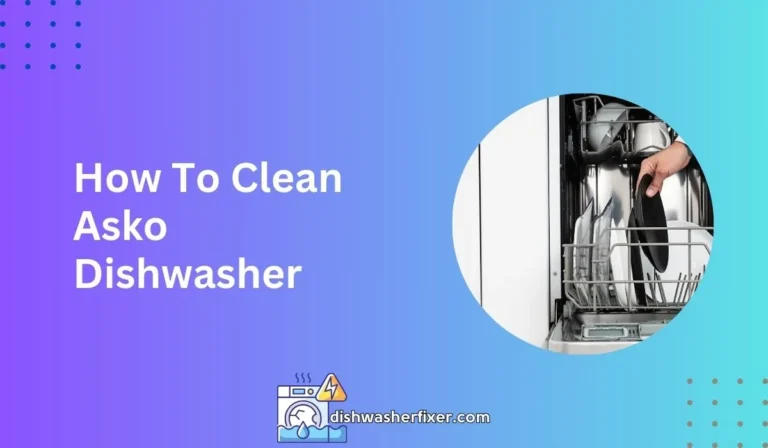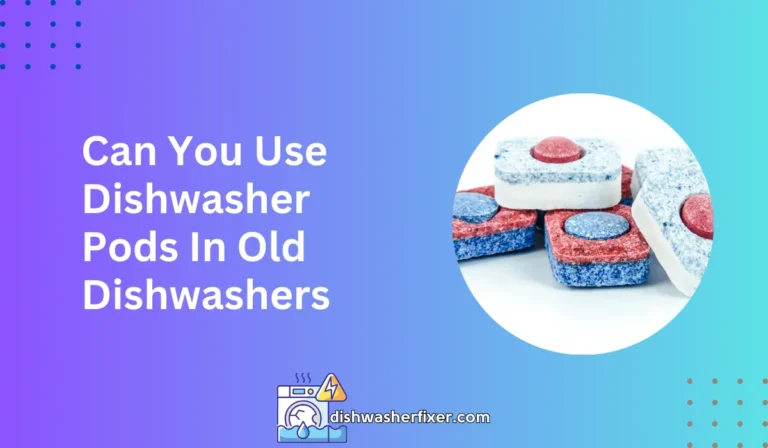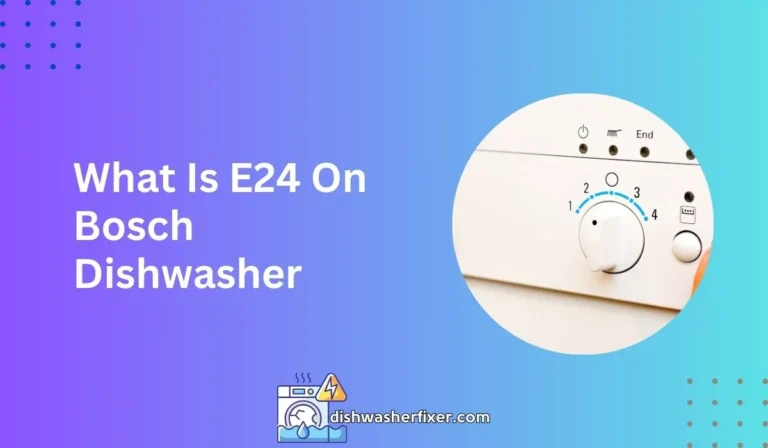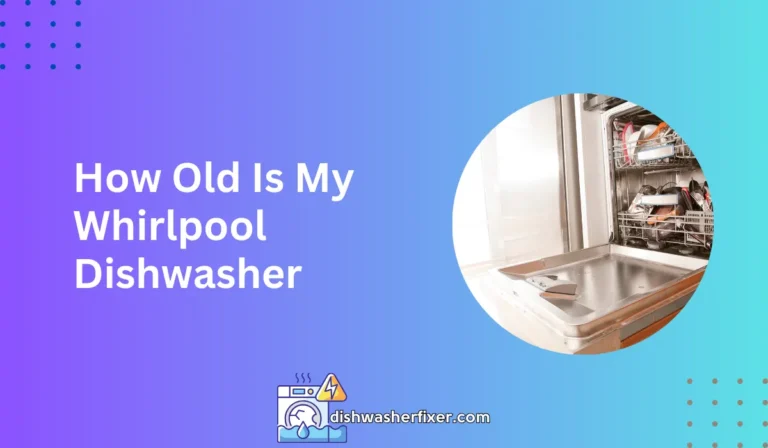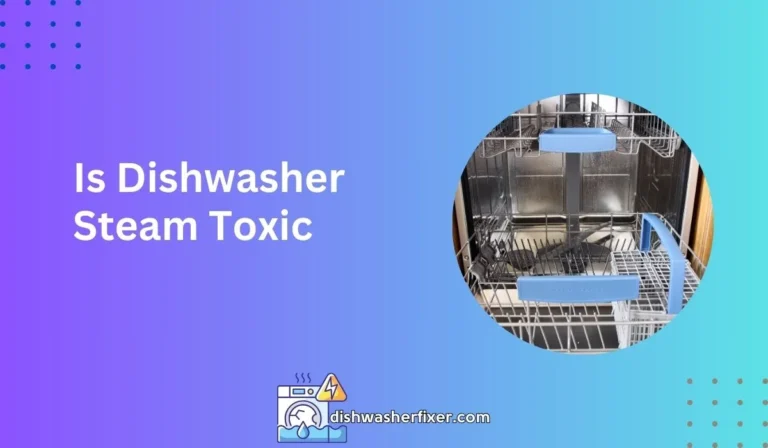Do Dishwasher Pods Clog Drains? Uncover the Truth!
Dishwasher pods generally don’t clog drains when used correctly. However, pod remnants can contribute to clogs if the dishwasher isn’t functioning properly or if pods are used in excess. Regular maintenance and following usage instructions reduce the risk of clogs.
Understanding Dishwasher Pods and Drains
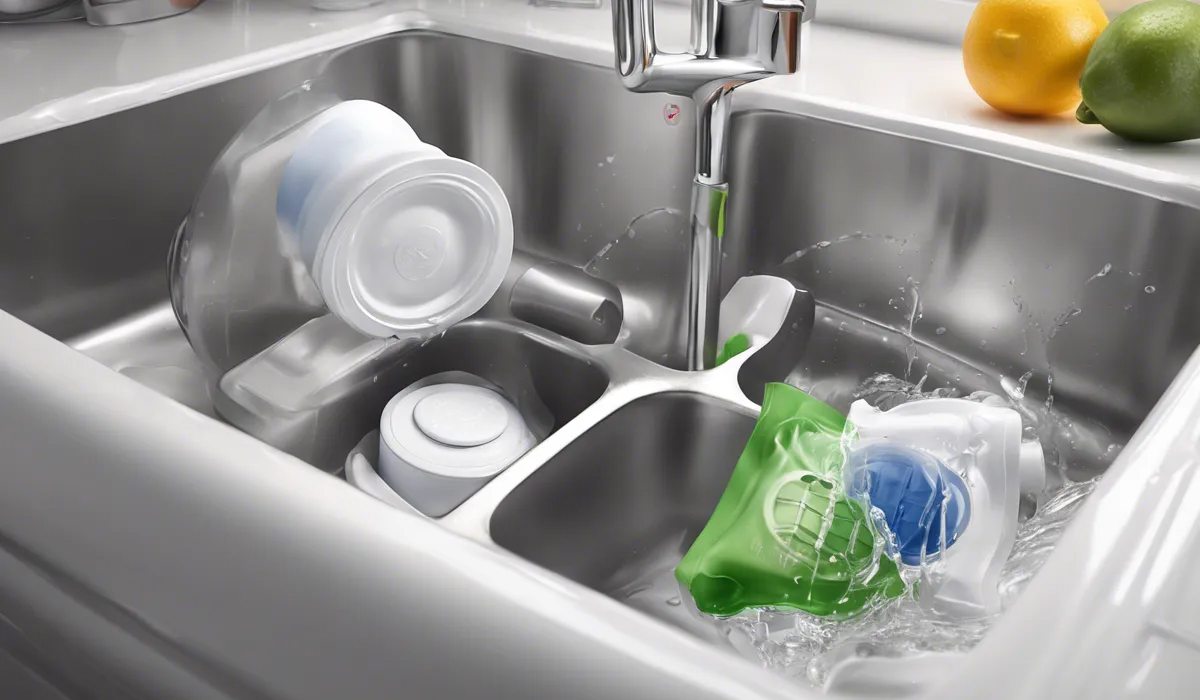
Definition of Dishwasher Pods: Ingredients and Purpose
Dishwasher pods are small, individual packets containing concentrated dishwashing detergent. These pods are designed to make dishwashing more convenient and efficient.
They typically contain a mix of enzymes, surfactants, bleach, and other cleaning agents that work together to break down food residues, grease, and stains from your dishes.
The purpose of dishwasher pods is to provide a pre-measured amount of detergent, which can help prevent overuse and ensure optimal cleaning performance.
How Drains Work in Relation to Dishwashers
The drain system in a dishwasher is crucial for removing used water that has cleaned the dishes.
Once the cleaning cycle is complete, the water drains out through a filter that catches large food particles, and then it flows through a hose to the household drainage system.
Proper functioning of the drain system is essential to prevent water from backing up and causing problems.
Common Misconceptions About Dishwasher Pods and Drain Clogs
Many people believe that dishwasher pods are the main culprits behind clogged drains.
However, this is often a misconception. While it is true that any detergent can contribute to clog formation if not used properly, dishwasher pods themselves are designed to dissolve completely in water.
Issues usually arise from improper use or dishwasher malfunctions.
Do Dishwasher Pods Cause Clogs?

Analysis of Pod Solubility in Water
Dishwasher pods are formulated to dissolve entirely in water, particularly during the hot water cycle of a dishwasher.
The outer casing, usually made of polyvinyl alcohol (PVA), dissolves upon contact with water, releasing the detergent. When used correctly, pods should not leave any significant residue that could lead to clogs.
Factors That Can Contribute to Dishwasher Pod-Related Clogs
Overloading Dishwashers
When a dishwasher is overloaded, water and detergent cannot circulate properly, which may result in pods not dissolving completely. This can leave remnants that might contribute to drain blockages over time.
Water Temperature Issues
If the water in the dishwasher is not hot enough, pods may not dissolve properly. Most dishwasher pods are designed to dissolve at a certain temperature range, usually around 120-160 degrees Fahrenheit.
Incomplete Pod Dissolution
Incomplete pod dissolution can occur if the dishwasher’s spray arms are obstructed or if the water jets cannot reach the pod. This can leave pod material in the dishwasher, which may eventually lead to clogs.
Comparing Pod Usage to Traditional Dishwashing Detergents and Their Impact on Drains
Traditional dishwashing detergents, whether in powder or liquid form, can also cause clogs if used excessively. Unlike pods, these detergents require manual measurement, which can lead to overuse.
In comparison, pods offer a pre-measured dose that, when used as directed, should not pose any greater risk to drains than traditional detergents.
Preventing and Addressing Drain Clogs from Dishwasher Pods
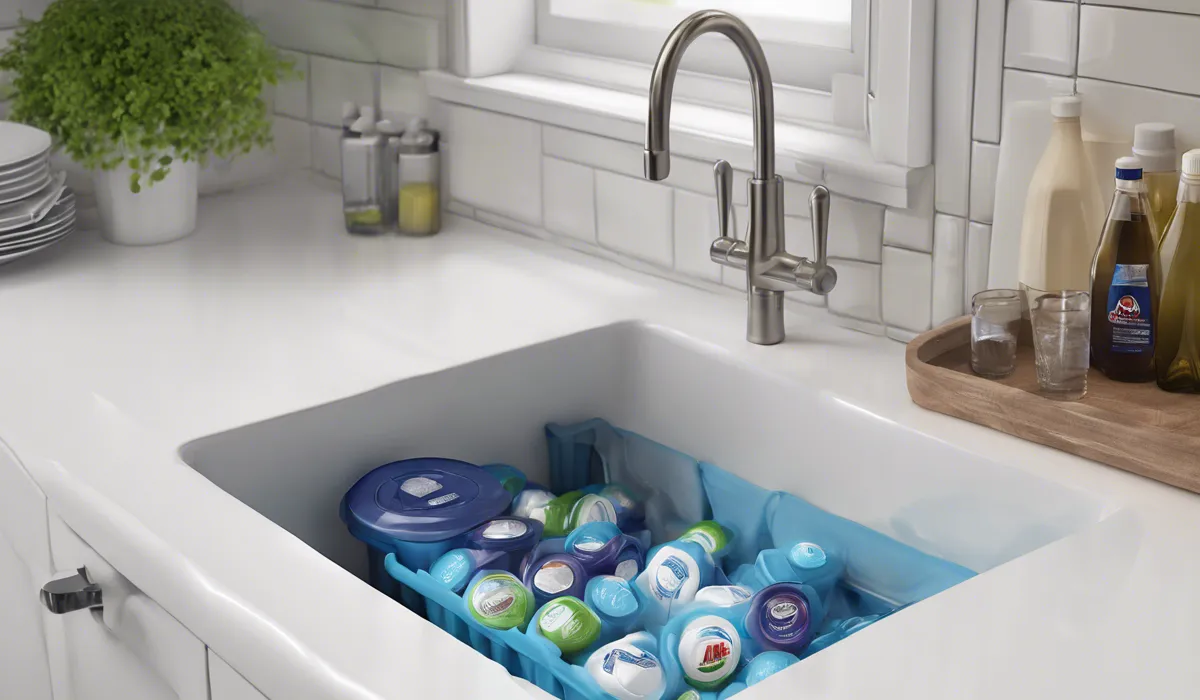
Best Practices for Using Dishwasher Pods
Recommended Amount Per Load
It’s important to use only one pod per load as recommended by manufacturers. This ensures that there is just enough detergent to clean the dishes effectively without leaving any excess that could contribute to clogs.
Ensuring Proper Water Temperature
Check your dishwasher’s settings to ensure it is heating water to the optimal temperature for pod dissolution. If necessary, adjust your home’s water heater to reach the recommended temperature range for your dishwasher pods.
Regular Maintenance Tips for Dishwasher and Drains
Regularly cleaning your dishwasher’s filter and checking the spray arms for clogs can prevent buildup that may cause issues. Additionally, using a dishwasher cleaner can help maintain the internal components and reduce the risk of clogs.
Steps to Take if a Clog Occurs: DIY Fixes and When to Call a Professional
If you suspect a clog, first try running the dishwasher on a hot water cycle without dishes to see if that resolves the issue. If not, check the drain hose and filters for obstructions.
For persistent clogs, it may be best to call a professional plumber to ensure the problem is resolved without damaging your dishwasher or plumbing.
FAQs About Do Dishwasher Pods Clog Drains
Do dishwasher pods cause clogs when used as directed?
No, dishwasher pods should not cause clogs when used according to the manufacturer’s instructions.
Can remnants of dishwasher pods lead to drain blockage?
Yes, remnants of dishwasher pods can contribute to clogs if the dishwasher is malfunctioning or if the pods are used excessively.
Is it necessary to perform regular maintenance to prevent dishwasher pods from clogging the drain?
Yes, regular maintenance is recommended to ensure proper dishwasher function and to reduce the risk of clogs from pod remnants.
What should I do if I suspect dishwasher pods are clogging my drain?
If you suspect a clog, check for proper dishwasher operation and consult the user manual for troubleshooting or contact a professional plumber.
How can I prevent dishwasher pods from clogging my drain?
Prevent clogs by using dishwasher pods as directed, not exceeding the recommended amount, and ensuring your dishwasher is functioning correctly.
Final Thoughts
Dishwasher pods are not typically a cause of clogged drains when used as directed. Clogs might occur if pods don’t dissolve properly due to malfunctioning dishwashers or overuse.
To minimize the risk of clogs, ensure your dishwasher is in good working order and adhere to the pod manufacturer’s guidelines.
